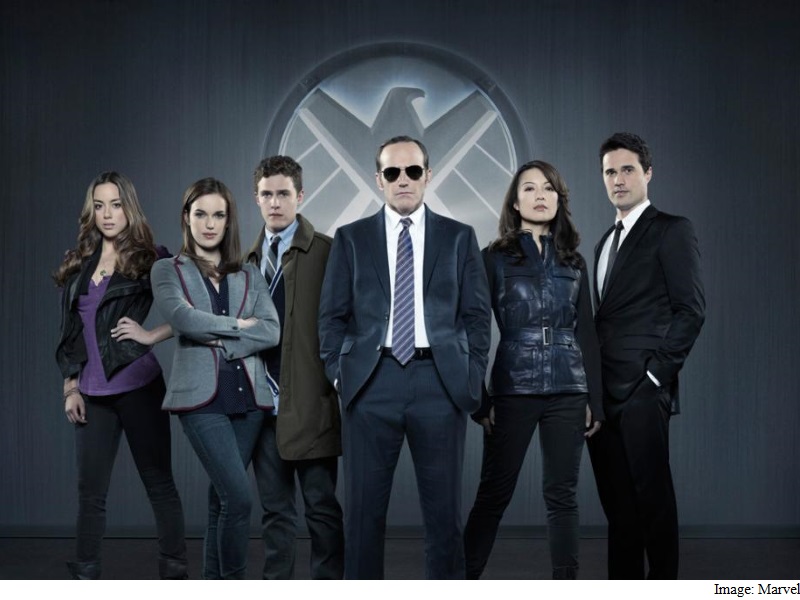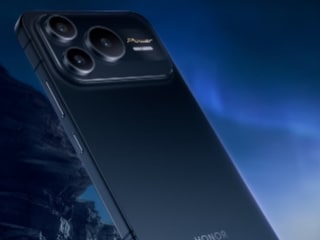- Home
- Social networking
- Social networking Features
- Coming to You Live From Facebook, a Lure Back to Your TV
Coming to You Live From Facebook, a Lure Back to Your TV

Gregg, who plays agent Phil Coulson, answered fans' questions from the set of the Marvel show. The glare in his glasses, his gestures off camera and the impromptu responses conveyed an intimate, behind-the-scenes atmosphere. Other cast members made appearances and then Gregg returned to remind everyone about the most important detail: the show was about to start.
(Also see: Facebook Ramps Up Live Video to Challenge Twitter's Periscope)
Since Facebook rolled out live video for celebrities last year, the service has become a popular tool for broadcasters like Walt Disney Co.'s ABC to entice TV viewers to watch shows when they air - and sit through the ads. That's a real challenge in the era of Netflix and Hulu, when audiences have more options than ever and live TV viewing is declining.
"Over the course of the season we started doing it more and more," Ben Blatt, ABC's head of digital marketing, said in an interview. "We want to continue to encourage and incentivize audiences around the idea of meeting up at a time and place for a shared experience."
ABC isn't alone. The Fox network used Facebook to bring viewers backstage with country singer Keith Urban on 'American Idol,' while Discovery Communications asked the stars of its nonfiction shows, from snake wranglers to survival experts, to answers fans' questions. More than 2 million watched Captain Josh Harris answer questions before the season premiere of "Deadliest Catch." The actual episode drew 2.55 million viewers, according to Nielsen data.
Facebook first approached ABC about live webcasting last year. The broadcast network tested the service with "Dancing With the Stars," according to Blatt. ABC has since used Facebook to live-stream conversations with contestants on "The Bachelor" and a producer of its new show "The Catch."
"It's gratifying to see that people are absorbing this and engaging in real time," said Josh Weinberg, who oversees digital strategy at several Discovery networks.
Conventional media companies have to weigh how much they may be enabling competitors, or sending ad dollars their way to attract young audiences. Twitter said on Tuesday it will stream the National Football League's Thursday night games next season, competing with CBS and Comcast Corp.'s NBCUniversal. Facebook also had been in the bidding process, according to a person familiar with the matter.
"It's a prisoner's dilemma," said Anthony DiClemente, an analyst with Nomura Holdings Inc. "The media companies are seeing linear TV viewership going down and they need to be creative to find young viewers."
TV networks have used social media to promote shows since before Facebook and Twitter were public companies. Twitter was among the first to sell itself as a friend to TV. Show handles, such as @AmericanIdol, and hashtags created a playground for fans to gather and chat. Then stars began tweeting while a show was on the air.
In early 2015, Twitter introduced live events through Periscope, an online service it bought in March 2015. By midyear, Facebook was testing a live feature with celebrities, and by late 2015 it had media companies using it, including Netflix Inc. and Hulu LLC.
TV executives who have compared the services say they like Facebook's archive feature, which lets viewers revisit clips. Newer players like Meerkat and Periscope aren't used by enough people yet.
For now, Facebook is getting content for free. The company hasn't begun selling ads with the live clips yet. Advertising produced the bulk of Facebook's $17.9 billion (roughly Rs. 1,19,107 crores) in 2015 revenue, a sum that exceeds the combined total of Disney's broadcast and cable channels. Some clips are professional and slick, resembling a Hollywood show like "Entertainment Tonight."
Facebook has also toyed with paying stars to use the live product, a development first reported by the technology website Re/code.
The company, for its part, doesn't view the service as competition for Hollywood.
"Live video on Facebook is a different and complementary experience to conventional TV programming," the company said in an e-mailed statement. "Our goal with live video is to work with our partners to move to a sustainable monetization model quickly. We are not focused on acquiring the rights to conventional TV programs."
Facebook will announce new features this week that make it easier for people to find live streams, and upload live videos of themselves for all to see. That too appeals to TV marketers, who envision fans posting video from events, or from their couch.
The company's entertainment partners downplay any potential threat. They say the social network is more interested in providing fans access to stars than acquiring premium programming. They also acknowledge that could change.
"There is always the risk," Blatt said. "As long as you can make sure it is complementary, which it currently is, there is no concern. It's just another method of how people consume content that complements what we're doing. All ships rise."
© 2016 Bloomberg L.P.
Catch the latest from the Consumer Electronics Show on Gadgets 360, at our CES 2026 hub.
Related Stories
- Samsung Galaxy Unpacked 2025
- ChatGPT
- Redmi Note 14 Pro+
- iPhone 16
- Apple Vision Pro
- Oneplus 12
- OnePlus Nord CE 3 Lite 5G
- iPhone 13
- Xiaomi 14 Pro
- Oppo Find N3
- Tecno Spark Go (2023)
- Realme V30
- Best Phones Under 25000
- Samsung Galaxy S24 Series
- Cryptocurrency
- iQoo 12
- Samsung Galaxy S24 Ultra
- Giottus
- Samsung Galaxy Z Flip 5
- Apple 'Scary Fast'
- Housefull 5
- GoPro Hero 12 Black Review
- Invincible Season 2
- JioGlass
- HD Ready TV
- Laptop Under 50000
- Smartwatch Under 10000
- Latest Mobile Phones
- Compare Phones
- OPPO Reno 15 Pro Max
- Honor Win RT
- Honor Win
- Xiaomi 17 Ultra Leica Edition
- Xiaomi 17 Ultra
- Huawei Nova 15
- Huawei Nova 15 Pro
- Huawei Nova 15 Ultra
- Asus ProArt P16
- MacBook Pro 14-inch (M5, 2025)
- OPPO Pad Air 5
- Huawei MatePad 11.5 (2026)
- Xiaomi Watch 5
- Huawei Watch 10th Anniversary Edition
- Acerpure Nitro Z Series 100-inch QLED TV
- Samsung 43 Inch LED Ultra HD (4K) Smart TV (UA43UE81AFULXL)
- Asus ROG Ally
- Nintendo Switch Lite
- Haier 1.6 Ton 5 Star Inverter Split AC (HSU19G-MZAID5BN-INV)
- Haier 1.6 Ton 5 Star Inverter Split AC (HSU19G-MZAIM5BN-INV)

















